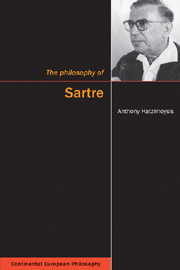1 - A narrative prelude
Summary
Sartre enters the systematic study of philosophy with an array of views that will affect the initial choice of themes to explore, and delineate some of the core theses he will later develop. Prominent among those views is that existence is irreducible to thought: the world is not the creation of a web of ideas, and depends for its existence on no design, human or divine. As such, all entities are “contingent”, since they form part of a reality that exists without necessity or reason, and “gratuitous”, as they lack justification, and serve no purpose: they simply are.
Often stated in an aphoristic manner, the above views are not self-evident. Yet their significance for appreciating Sartre's worldview is hard to overstate. They were first encountered on the pages of La Nausée (Nausea), a novel whose flowing narration of human experience imprints on the reader the material presence of things. Written in the form of a personal diary, the novel gives us an intimate picture of events in the life of an individual whose thoughts and feelings are transformed as their objects start presenting themselves to his senses. The book is a rich source of ideas that, by Sartre's own standards, lacked at that stage the solidity required for a philosophical treatise. It is these ideas, however, that will provide the rough material to Sartre's systematic argumentation: we thus need to grasp the former if we are to properly understand the latter.
- Type
- Chapter
- Information
- The Philosophy of Sartre , pp. 1 - 10Publisher: Acumen PublishingPrint publication year: 2011



